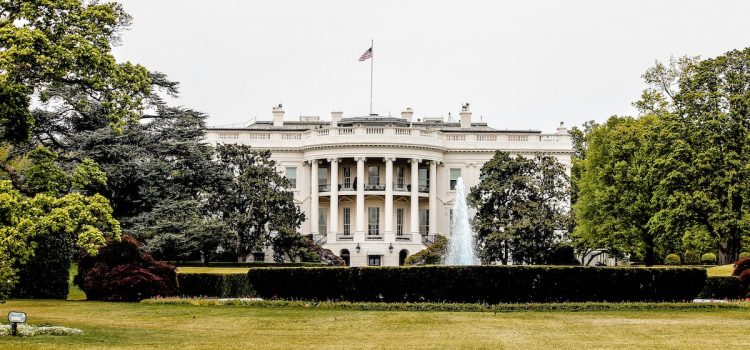

This article is an excerpt from the Shortform book guide to "Battlegrounds" by H. R. McMaster. Shortform has the world's best summaries and analyses of books you should be reading.
Like this article? Sign up for a free trial here.
Has the U.S. been naive in its foreign policy since the end of the Cold War? Is overwhelming military force the answer to every threat?
General H. R. McMaster describes how poor fundamental assumptions have clouded U.S. foreign policy in ways that are detrimental to itself and other nations. He discusses how these flawed assumptions have led to foreign policy failures in multiple corners of the world.
Continue reading to learn about McMaster’s take on U.S. foreign policy.
U.S. Foreign Policy Failures
McMaster blames misguided assumptions for America’s foreign policy failures. First among these is the belief that democracy and capitalism are inevitable systems that all countries will naturally shift to over time. The second bad assumption is that, after the Cold War and the Gulf War, no adversary would consider armed conflict with the U.S. military to be viable. Let’s take a look at each.
Flawed Assumption #1
McMaster explains that, after the Cold War, the U.S. was gripped by a euphoric sense of hope that the ideological battles of the 20th century were over. Americans’ overriding assumption was that democratic governments and capitalist economies would flourish in the post-Soviet world, without any great effort or support from the U.S. itself. This attitude has led to policies of appeasement toward dictatorial regimes, such as those toward China and Iran, in the hope that they will eventually “soften,” as well as the removal of U.S. support from nations in transition, such as Afghanistan and Iraq, where democracy had the potential to flourish if protected from disruption by extremists.
| The Post-Soviet Hope for Democracy If anything, McMaster understates the wave of optimism felt in the U.S. as the Cold War came to an end. A 1989 Gallup poll conducted after the Berlin Wall fell showed that even before the Soviet Union’s collapse, over three-quarters of Americans believed that personal freedom and economic prosperity would shortly blossom throughout eastern Europe. The rapid dissolution of the Soviet Empire sent a surge of hope through the American government, which had always assumed that the USSR was a permanent fixture in the world’s political landscape. However, there were some who warned against premature celebration. In Out of Control, former U.S. National Security Advisor Zbigniew Brzezinski argued that the transition of post-Communist countries to capitalism would not only be chaotic, but would also give rise to a fertile breeding ground for corruption, ethnic tensions, and fascism. In hindsight, what flourished in the post-Soviet ’90s weren’t democratic governments, but regimes that maintained the pretense of democracy as a means to solidify authoritarian rule. |
Appeasement has often been the hallmark of American relations with China’s regime, under the assumption that close-knit economic trade would cause the ruling Chinese Communist Party to relax its political stranglehold on Chinese culture. U.S. President Richard Nixon famously courted the Chinese government in an effort to ally them against the Soviet Union, and President Jimmy Carter did much the same in the hopes that Chinese leader Deng Xiaoping’s economic and social reforms would eventually Westernize Chinese society. McMaster writes that this was all wishful thinking, as evidenced by the Chinese government’s continued repression of political speech and persecution of minority groups within China’s borders.
(Shortform note: The Chinese reforms that McMaster alludes to were initiated in 1978 to move China away from a Soviet-style “planned economy” to a more Western model, opening the door to foreign investment and technological innovation. Over the next 40 years, China’s economy boomed, as evidenced by a 2,500% increase in Chinese income per capita. However, because economic reform was not coupled with political reform, a system of collusion arose between privileged Chinese businessmen and the government officials charged with managing the country’s resources. Because of the profitability of this system, there’s no incentive to relax authoritarian restrictions when the elite maintain their wealth via maintaining political control.)
American disengagement (a desire to avoid another long-term entanglement such as in Vietnam) has shown itself most vividly in the U.S.’s ongoing interactions in the Middle East. In 2010, the series of uprisings collectively known as the Arab Spring rekindled hope in the West that with the overthrow of dictatorships, representative democracy would flourish in the region. McMaster claims that this was a chance for the U.S. to support (not control) fledgling governments as they replaced authoritarian regimes. However, the U.S. kept its distance, assuming that interference might preclude the “natural evolution” toward democratic ideals. Instead, the U.S.’s absence allowed authoritarian Islamic groups to grab power.
| Obama and the Arab Spring In his memoir A Promised Land, former President Barack Obama provides a different perspective on the Arab Spring movement as it related to U.S. foreign policy. While he personally empathized with the protestors’ desire to topple their corrupt and oppressive regimes, White House analysts were concerned that in countries such as Egypt, the necessary preconditions for a democratic government weren’t in place. Because Obama had already inherited two ongoing wars from the Bush administration (those in Iraq and Afghanistan), he was hesitant to commit any further U.S. forces to an already chaotic situation. The U.S.’s limited intervention in Libya was carried out under the auspices of a UN coalition, but rather than being accused of doing too little (as McMaster suggests), Obama’s critics claimed that he’d employed too much military force in the region. |
Flawed Assumption #2
The U.S.’s self-serving assumption that America’s political and economic values are universal leads to another erroneous conclusion—that any threat to democracy can be stamped out by the simple application of overwhelming military force. McMaster criticizes the reductionist nature of this fantasy that incurs long-term consequences in pursuit of short-term goals.
Ever since Vietnam, the U.S. has been averse to any protracted military engagement and has instead focused on achieving short-term victories without any corresponding long-term commitment. McMaster says this is an exercise in denial—military action must always be tied to political policy goals to be effective. The consequences of ignoring this fact can be seen in the U.S.’s involvement in Iraq and Afghanistan. In both cases, the U.S. achieved purely military victories—the overthrow of Saddam Hussein and the routing of Al-Qaeda—without ample consideration of the political realities those countries would face in the aftermath of war.
(Shortform note: The disassociation that McMaster describes between U.S. diplomacy and its military efforts can be seen in the 30-year decline of the U.S. State Department, which underwent budget cuts in the 1990s and again during the Obama and Trump administrations. The result has been a lack of trained diplomats capable of advancing American interests through peaceful channels. The then-anonymous author of A Warning, Miles Taylor, called out the chaotic state of U.S. diplomacy under Trump even as McMaster was trying to bring it into focus. The Biden administration set rebuilding the State Department as one of its priorities. But, while there has been progress, it still faces staffing shortages and budget difficulties.)
In its attempts to keep military goals focused and narrow, McMaster argues that the U.S. creates the very long-term entanglements it wants to avoid. For instance, the Iraqi and Afghan people were imagined to be helpless groups just waiting for the U.S. to save them. American leaders gave no thought to either region’s tribal and ethnic divisions or the political power of extreme Islamist groups that would complicate attempts to build representative governments. None of those issues were caused by the U.S., but America’s lack of political follow-through let chaos flourish when there could have been peace.
(Shortform note: In Orientalism, Edward Said decries the tendency of Western thinkers to view Middle Eastern peoples as a homogenous group. His analysis backs up McMaster’s assertion that U.S. and European policymakers see the Middle East through a self-serving lens that paints the West as more intellectually advanced. Historically, this view has been used to justify the West’s colonial domination of the region. In modern times, the orientalist view expresses itself when politicians and journalists reduce and oversimplify the region’s complex political realities in order to apply the blanket label of “terrorists” to entire socio-ethnic populations.)
Exercise: How Empathetic Is Your Worldview?
McMaster contends that U.S. foreign policy is distorted by its policymakers’ America-centric outlook, which includes a failure to view the world through the eyes of those who lead and live in other countries. As individuals, many people may fall into the same trap of not seeing the world from outside their cultural lens. Consider the attitudes you may have about people who don’t share your cultural and political outlook, whether they live in other countries or your own.
- Think of a country whose policies are generally considered to be hostile to yours. What do you know about that country’s government? What are its leaders’ fundamental motivations?
- Think of a political group in your country whose ideas you oppose. Why do you believe its members hold the views that they do? What are some points of agreement between your views and theirs, and where do they diverge?
- Consider where your information comes from about other countries or opposing political groups in your own. Do your sources of news and information generally confirm your established beliefs, or do they also represent the views of others? What other information sources might you access to provide you with a different perspective?

———End of Preview———
Like what you just read? Read the rest of the world's best book summary and analysis of H. R. McMaster's "Battlegrounds" at Shortform.
Here's what you'll find in our full Battlegrounds summary:
- Why the U.S. has lost influence on the global stage
- The bad assumptions that cloud U.S. foreign policy
- Strategies the U.S. should adopt in order to help defend the free world






